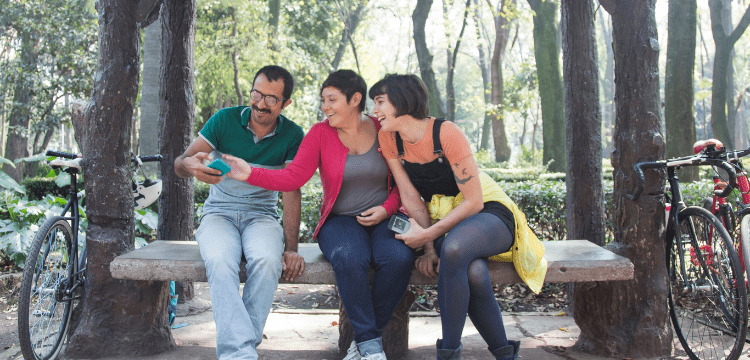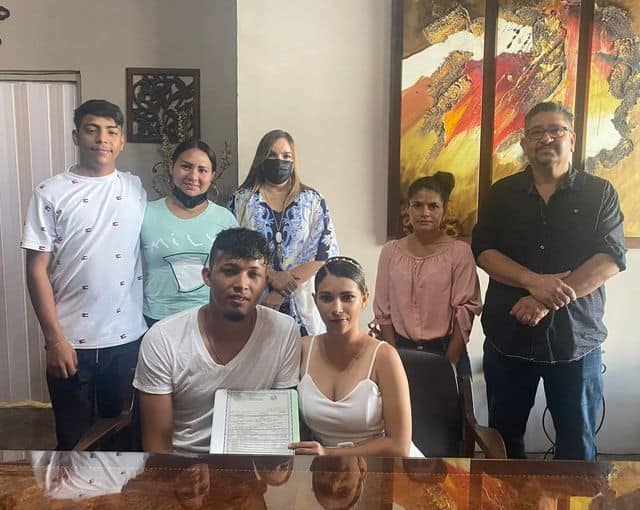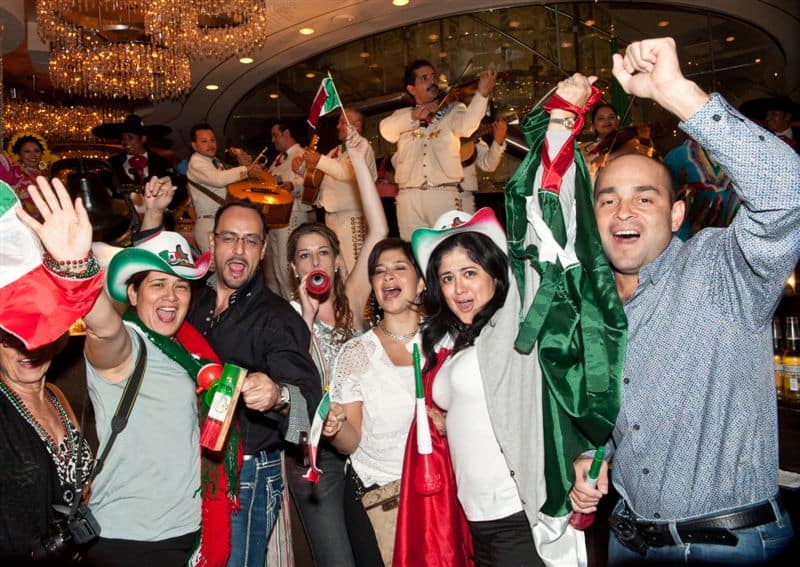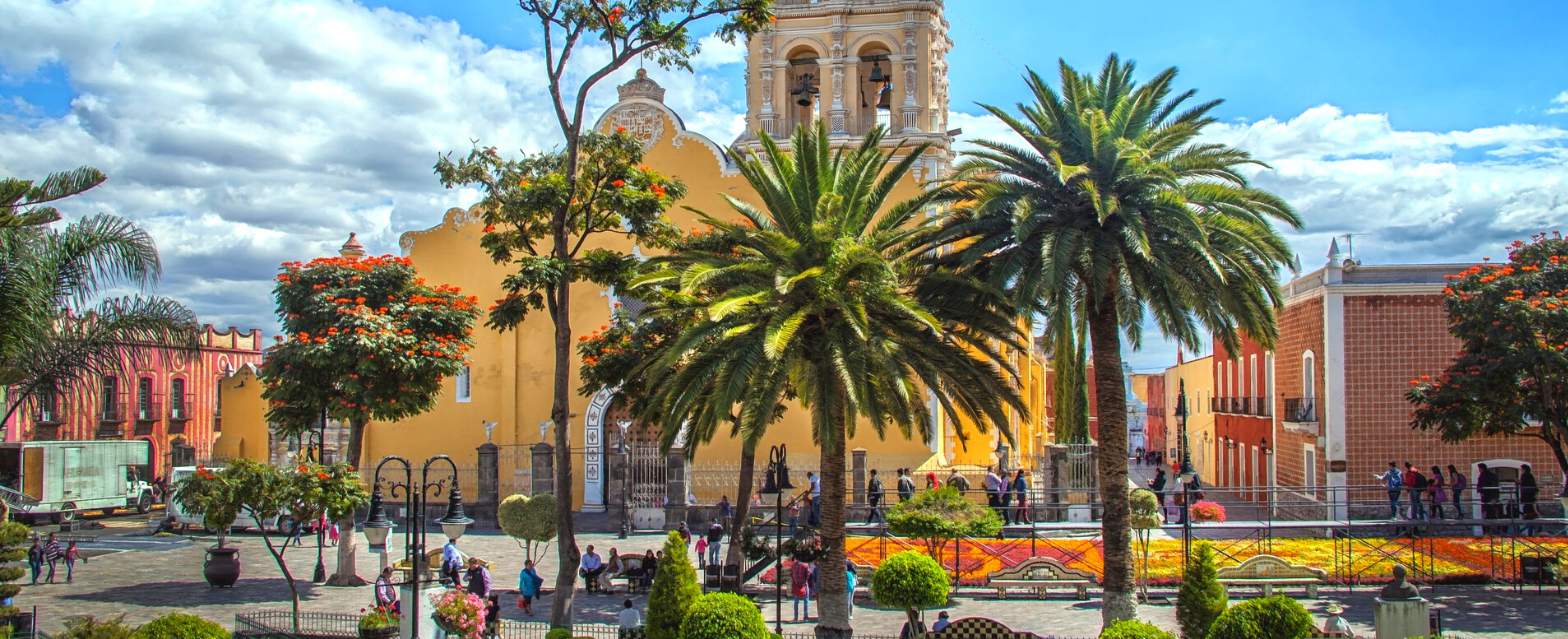Cultural differences between countries can often be subtle but can also be significant and affect how people interact.
Despite their close proximity, Mexico and the United States have different cultures that can sometimes lead to misunderstandings and unintended offenses.
I want to help you not only move to Mexico the right way, but once you’re here, I also want to help you integrate little by little by avoiding cultural faux pas. Therefore, in this blog post, we will explore 10 things considered normal in the United States but rude in Mexico.
Before we start, I don’t want to insinuate that any country is better than the other for these cultural differences. I simply want to ensure you know which things are rude in Mexico so you can break away from being stereotyped as the gringo who doesn’t have respect for Mexican norms.
Skipping the Greeting
Starting a conversation or interaction without a formal greeting is normal in the United States. It’s common to start a conversation without ever asking, “Hi, how are you… how is your day…?” in the U.S. and Canada, we tend to get straight to our point.

However, in Mexico, it is considered rude to skip the greeting. Instead, it is customary to greet someone with a handshake, hug, or kiss on the cheek, depending on the level of familiarity. It’s customary to ask someone how they are doing and then ask the question on your mind or start the conversation.
Of course, this all depends on the context of the interaction. For example, if you’re at a grocery store, it is normal to ask an employee where the carrots are without making small talk.
But if you’re talking to a realtor about a place you’d like to see, or you’re talking to someone at the bank about a possible loan, then the small talk at the beginning is key to building a relationship.
Expect approximately ten to fifteen minutes of small talk before getting down to business.
When you make friends with Mexicans, expect them to hug or kiss you on the cheek. And Mexicans also tend to hug you a bit longer than you’re probably used to. So, if you make friends here in Mexico, please try to break your usual physical limits.
Learn How to Move to Mexico and Have a Better Life for Less! Check out our Complete Mexico Relocation Guide.
Using First Names
In the United States, it is common to address people by their first names, regardless of age or social status. However, in Mexico, it is considered disrespectful to address someone by their first name unless they have asked you to call them by their first name.
It is more appropriate to use formal titles such as “Señor” or “Señora” followed by the person’s last name.
Additionally, if someone is older than you, it is courteous to refer to them as “usted” and not “tu.”
Don’t worry if you make a mistake with the formal and informal Spanish, though. Don’t let that deter you from learning it.
When Dustin and I first met, he would always use the informal words with my grandfather or call him Hector (by his first name) while all the other in-laws call him “Señor.”
And to be honest, I thought it was adorable. Because regardless of the mistake, he was trying to learn Español as best as possible. But eventually, when he heard others talk to my grandfather in the formal form, he understood the differences.
When in doubt, use the formal “usted.” No one will be offended if you use the formal form with them, even if it was misused.
Interrupting Others
North of the border, it’s common for people to interrupt each other during conversations. And I’m not talking about arguments but casual conversations. It’s how people communicate, and that’s ok. People understand each other that way without being offended.

However, in Mexico, interrupting someone is considered rude and disrespectful. Listening attentively and allowing the other person to finish speaking before responding is important. And sometimes Mexicans can be long-winded talkers. But it’s important for you to wait your turn to get your point across.
If you do need to interrupt, it’s a good idea to start by saying, “sorry for interrupting…”
Not Saying “Please” and “Thank You”
In the United States, I find that it’s perfectly normal for people to forget to say “please” and “thank you” in everyday interactions.
For example, when someone brings you your check at a restaurant. It’s normal not to say anything in the U.S., Or when someone delivers your mail, it’s perfectly normal to retrieve it and not say anything.
However, in Mexico, it is considered rude not to use these polite phrases. Instead, showing gratitude and appreciation for others is important, particularly when asking for a favor or receiving something.
And obviously, this varies from person to person. It’s a generalization of cultural differences.
Acknowledging People Around You
You can go anywhere in the U.S. and never have to speak to anyone around you or make eye contact. No one would think anything of it.
But in Mexico, don’t be surprised if you go to a sit-down restaurant and have the table next to you tell you, “provecho.” which is equivalent to Bon appetit or have a good meal. This also means that it’s a good idea to say “provecho” to someone next to you if they are eating.
I’ll never forget this one time when Dustin and I came back to Austin from Mexico City to see family and friends. And when we went to brunch, we sat at a communal picnic table. When I sat down, I turned to the couple next to me (two complete strangers) and said, “enjoy” with a smile. They both stared at me like I was a psycho. 😂 They didn’t know what to say and awkwardly stared at each other as if saying, “is this person crazy?”
Because you just don’t talk to strangers in the U.S.
But in Mexico, it’s a common courtesy to acknowledge people’s presence. When you go to a bank and wait in the lobby with others, it wouldn’t be unusual for someone to tell you “Buenos dias” or “Buenas tardes.” Even if you don’t know them.
I know some of these things may seem like common sense. And I don’t want to insult anyone by pointing out the obvious, but you would be surprised how many people are stunned when someone talks to them.
Not Dressing Appropriately
In the United States, casual attire is often acceptable in many settings, including business meetings, government settings, or formal occasions.
However, it is important in Mexico to dress appropriately for the occasion. This means dressing in formal attire for business meetings or modestly for religious or cultural events. You don’t want to seem “fachoso” which is the term used when someone doesn’t care about their clothes in Mexico.
For example, the groom in this picture went viral because he wore an undershirt to his civil wedding and was called too “fachoso” by the internet.

You don’t have to be a fashionista by any means but do try to wear something nice to a special occasion. Another example of this is being too casual when going out in public.
For example, in the U.S., it is not unusual to see a person wearing pajamas and slippers to a grocery store. In Mexico, you would never see that.
Another cultural difference that isn’t exactly rude but just uncommon is for men to wear shorts and sandals in Mexico. Unless you’re on the beach or in a warm climate, you will see a few locals wearing shorts and sandals.
I personally think you should dress in whatever you feel the most comfortable in and not worry about this. However, this is an easy fix if you want to blend in and not stand out.
FREE MOVING TO MEXICO CHEAT SHEET
Not Showing Respect for Elders
In the United States, there is often a sense of individualism and independence that can sometimes lead to a lack of respect for elders. However, respecting elders and acknowledging their wisdom and experience is important in Mexico. This includes using formal titles and addressing them with respect.
It also includes opening the door for an elder, giving up your seat on a bus, or helping an elder load their luggage on the bus if they seem to be alone.
Banks or other retailers may even have a special line dedicated to seniors.

In Mexico, sending your beloved grandmother, grandfather, or even great aunt or uncle to a nursing home would be unthinkable. People in Mexico (and Mexicans in the U.S.) move heaven and earth to keep their elderly with them throughout their final days.
Leaving a party without saying goodbye
This is a personal favorite of mine because despite how long Dustin and I have been married, he still gives me a hard time about having to say goodbye to everyone at the party before we can leave.
And I mean everyone!
You say goodbye to the host and thank them for inviting you to their house. But you also say goodbye to anyone you met with whom you may have talked that night.
You see, in Mexico, it’s all about relationships. And not saying goodbye at a party is a quick way to ensure you never get invited again.
But North of The Border, it’s completely normal to leave a wedding or gathering without saying goodbye to your hosts or anyone else you may have met that night.
And it is equally important to greet everyone when arriving.
Asking For Your Leftovers Back
If you have a small get-together in the U.S., it is completely normal for someone to ask for their leftover bottle of wine, whisky, or whatever snack they may have brought.
However, in Mexico, this is a no-no. Whatever you bring to a party is for the party. So please don’t ask for your bottle of fine whisky back. Instead, don’t bring anything you wouldn’t mind leaving.

If it’s a serving plate, a nice dish, or other utensils, it’s fine- but asking for the actual leftovers is seen as impolite.
Leaving The Table When You’re Done Eating
Wait to leave the table immediately after you are finished eating. This is especially important if someone at the table is still eating.
And when talking about manners towards elders, it is typical for the woman of the house to be the last person to sit down because they usually serve food and ensure everyone has what they need.
It’s a common courtesy not to start eating until your host can sit down.
But this also depends on the context of the situation. For example, if you’re at a wedding, it is common to wait until everyone at your table has been served so you can start eating. But you don’t necessarily have to wait for the bride and groom to sit down- because that could be a while.
Don’t Compare Things to Back Home
Mexicans are proud of their independence and have a strong sense of national identity and pride. Never compare how things are done in Mexico with how they are done in the United States, Canada, or anywhere else. Particularly with cultural differences.
It’s a quick way to start a heated debate.
A Blunt “No”
A swift, blunt NO is considered very rude in Mexico. It’s the most blasphemous word for Mexicans in any language; you have to give negatives with manners and between the lines (a common way is saying ‘gracias,’ thank you, but without the yes, the negative being implied).
I’ll never forget when I went to Palacio del Hierro, a high-end store around Mexico that sells clothes and furniture. And a salesperson approached me, trying to get me to sign up for their latest credit card.
I waved him off without saying anything, and as he kept trying to tell me about the promotion they were running, I turned around and just said, “No.”
He was stunned, and I was embarrassed. Because I had been so used to spending most of my adult life saying NO directly without offending anyone in the U.S.
But in Mexico, that is a faux pas.
Sharing Is Caring
It’s common courtesy to ask those around you if they want something of yours. When someone comes to your house, always offer them something to drink.
If you pull out a stick of gum, ask your friends if they’d like one too.
Mexico is a culture of sharing in general. Many meals are family-style, where the plates are served in the middle, and everyone takes a little bit from each dish. Tortillas are served in a single basket that gets passed around for the table to enjoy.
This is especially the case if you are with friends or family. If you’re sharing a meal with someone you don’t know, it’s less common.
However, in Texas, where I grew up a significant part of my adult life, it would be completely normal to go to a friend’s house and never be asked if you were hungry or thirsty. In Mexico, it doesn’t matter if you have a little or you have a lot; you always offer something from your pantry.
Bonus- Learning to Take A Joke
Here is bonus, because this thing that Mexicans do can offend people from north of the border. Mexicans joke about everything; you shouldn’t take particular offense unless you are very sensitive.
This is especially true if you are at an informal event with friends or someone around your age. But in the U.S., having this kind of banter with someone you barely know may be considered rude.

Not in Mexico.
Mexicans love to give people nicknames and make jokes about things that may be uncomfortable. The term “politically correct” isn’t really a thing in Mexico, especially in an informal setting.
Respecting and Celebrating Cultural Differences
I hope some of these cultural differences between Mexico and the U.S. can help you build better relationships when moving to Mexico.
After all, the point is not only to move to Mexico but to experience it. And that includes making lasting relationships with locals and understanding the cultural norms here. If you found this to be helpful, share it with someone you think might find use in it.
And if you have any more cultural differences to add, please let me know in the comments below.
Learn How to Move to Mexico and Have a Better Life for Less! Check out our Complete Mexico Relocation Guide.





